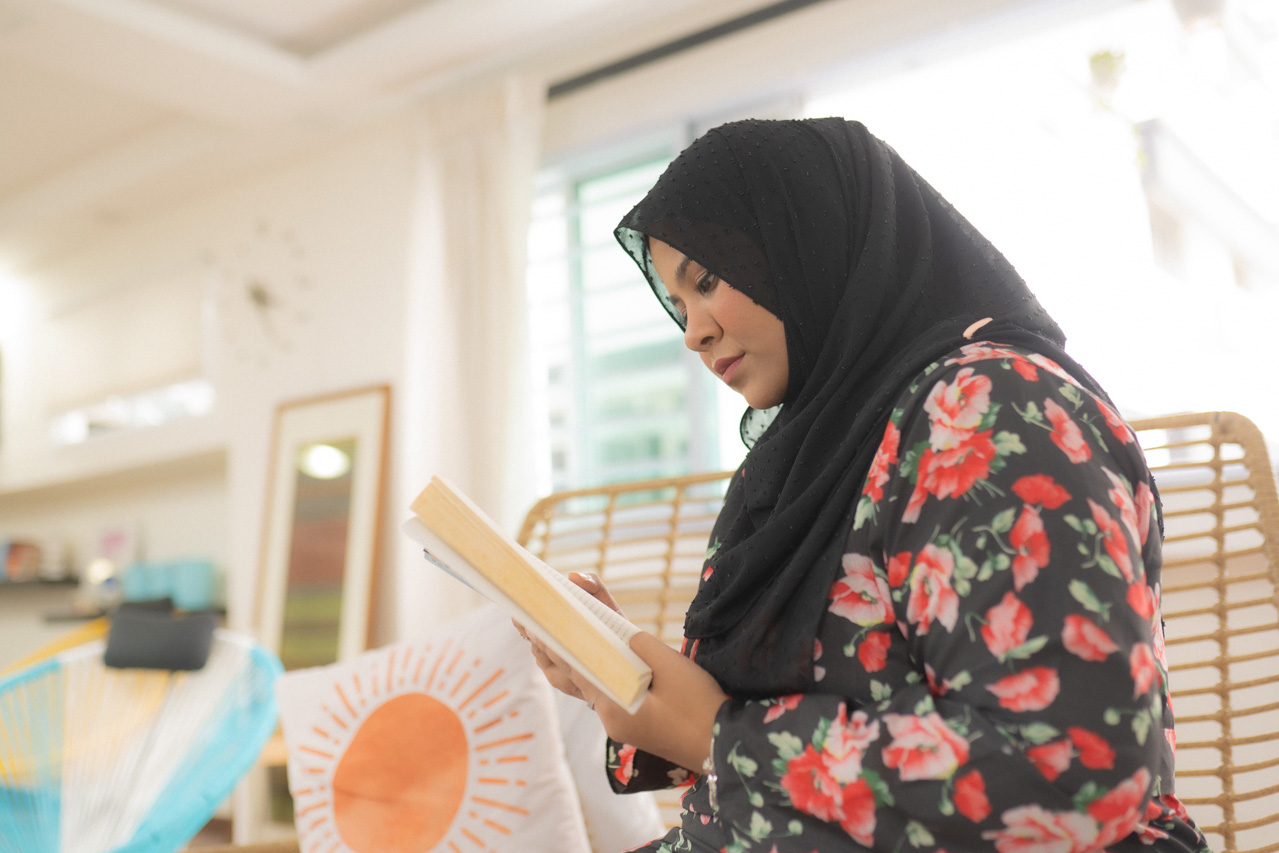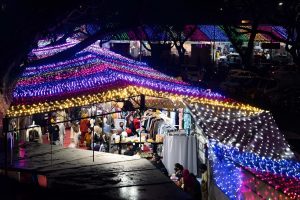All images by Thaddeus Loh for RICE Media unless otherwise stated.
The life of a typical Malay/Muslim woman is one of a persevering trouper. No matter what happens, the show must go on.
This formation of this identity starts at a young age. Even as kids, the engendered role of being in service to people (especially our elders and male relatives) is predetermined. Pop into a Malay/Muslim family’s kitchen on the eve of Hari Raya and you’ll find mothers teaching their daughters to weave ketupat, and make complex and time-consuming traditional dishes and kueh. When guests arrive, it’s the women who are expected to serve food and after the dust is settled, do all the cleaning up.
Sons could chip in too, of course. But they don’t have to carry the weight of being defacto homemakers. Things are changing though. More and more of our men are realising the need for them to provide support for women — especially during the pandemic when women play the role of mother, wife and daughter. Yes, there is progress, but domestic concerns are, by and large, held by women.
Ultimately, there’s an unspoken expectation of unconditional selflessness that makes it all too common to hear of Malay/Muslim women putting their educations and careers on hold to care for their children, or sick or elderly parents. In a culture steeped in the belief that this material life is temporary, the bigger priorities lie in things like family, faith and community — a sowing ground for the afterlife.
But traditional and cultural roles persist: women are caregivers, men are breadwinners. Even in 2021, where dual-income households are the default, financial contributions are expected to sit alongside domestic responsibilities.
And so women soldier on underneath the weight of these societal expectations. Life must go on.
The Weight
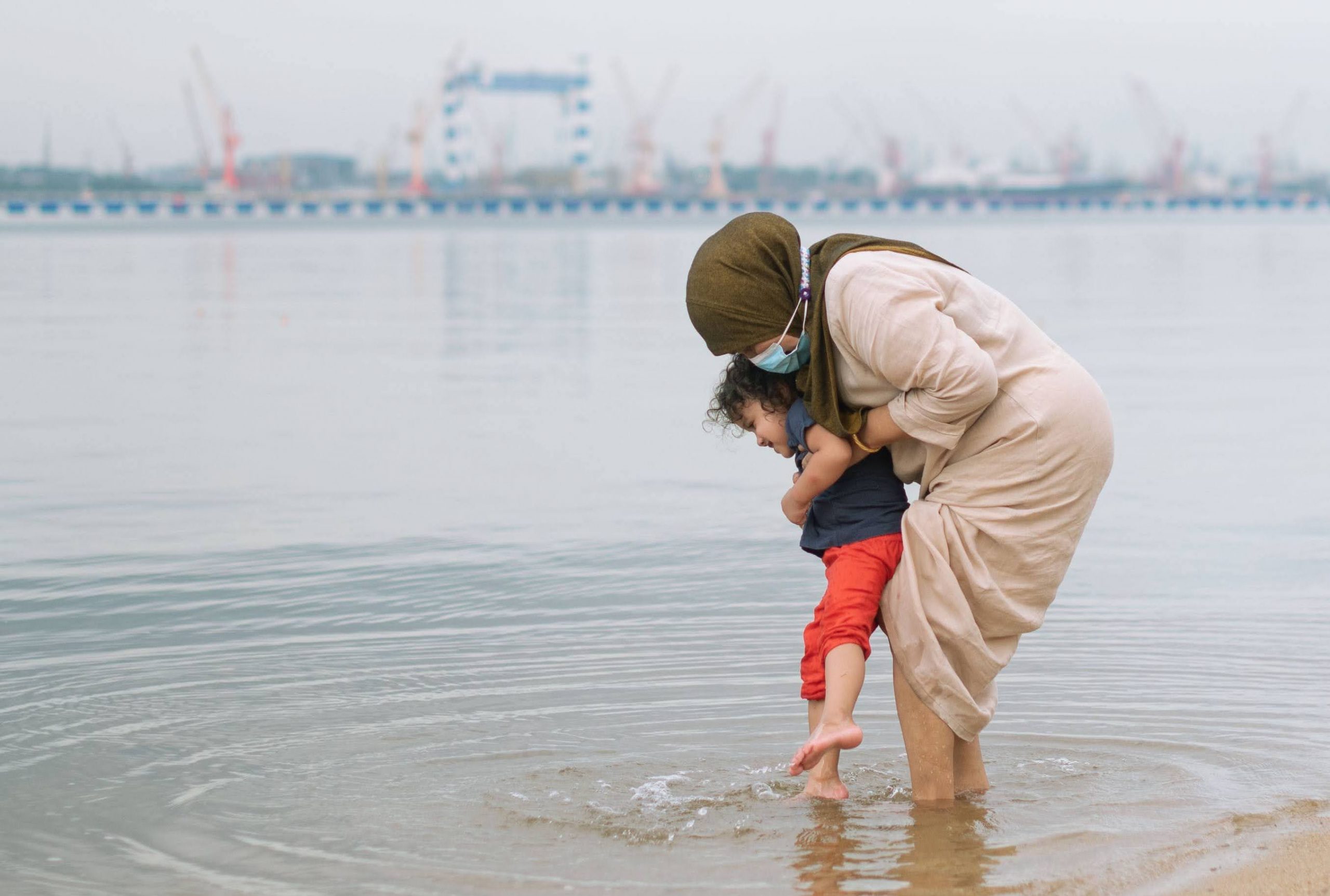
Most of the Malay/Muslim women I know take these pressures and expectations on the chin — they bear their responsibilities with grace and pride in the belief that they are fulfilling their duties to God. Self-care and mental wellbeing end up ranking low in the list of priorities populated by the needs of other people.
One of the key findings by non-profit organisation PPIS (Persatuan Pemudi Islam Singapura, or Singapore Muslim Women’s Association) asserts that Muslim women still find themselves subjected to longstanding cultural notions of gender roles and gender-related expectations that serve to restrict and hold back their potential and growth. This, in turn, does a number to our self-worth.
Crucially, there is a need for the community to move past old mindsets on gender roles and shared responsibilities when these socio-cultural expectations on women (to shoulder domestic duties) are making it tough for them to balance work and family. Especially now, with Covid-19 exacerbating this pressure.
As a female Malay/Muslim Singaporean, I know this all too well. Fortunately, I’ve coped relatively well in our shared Covid-19 reality thanks to past experience: a period of prolonged isolation in 2015 as a new mother living in South India for my husband’s job posting. A four-hour flight away from family, friends and familiarity.
Being stuck at home with my child all day? Check. Not seeing loved ones in person for months on end? Check. Feeling unproductive and worthless because I wasn’t able to work? Check. It took a literal natural disaster where I was trapped at home with an infant and without running water, electricity or phone connectivity that I came to accept that my mental health was in shambles.
I had been trying to do everything by myself and compartmentalise my role and my husband’s role in neat little boxes: I handle the work that’s to be done at home, and he handles work outside of the home. This mentality stemmed from the fact that, as a stay-at-home mother, I no longer contribute financially to our household, and thus must contribute in other ways domestically.
This was, of course, a product of my cultural upbringing. It’s understood that each gender provides equally significant contributions to the family realm.
Be that as it may, I realised it was important to ask for help. My husband gladly took time off work to be with our son so I could meet friends for coffee or get a haircut or indulge in a massage. Acknowledging that he couldn’t truly understand all the feelings I was experiencing, he encouraged me to find people who might be able to empathise better.
The first thing I remember doing was to reach out to a support group of mothers in a similar situation as me: primary caregiver to an infant, and far from home.
Having others in the same boat to commiserate with proved to be a huge boon. A support system by women for women did wonders for my state of mind — here was a way for me to connect and seek solace with fellow mothers who knew exactly what I was going through.
Teacher, Daughter, Wife and Mother
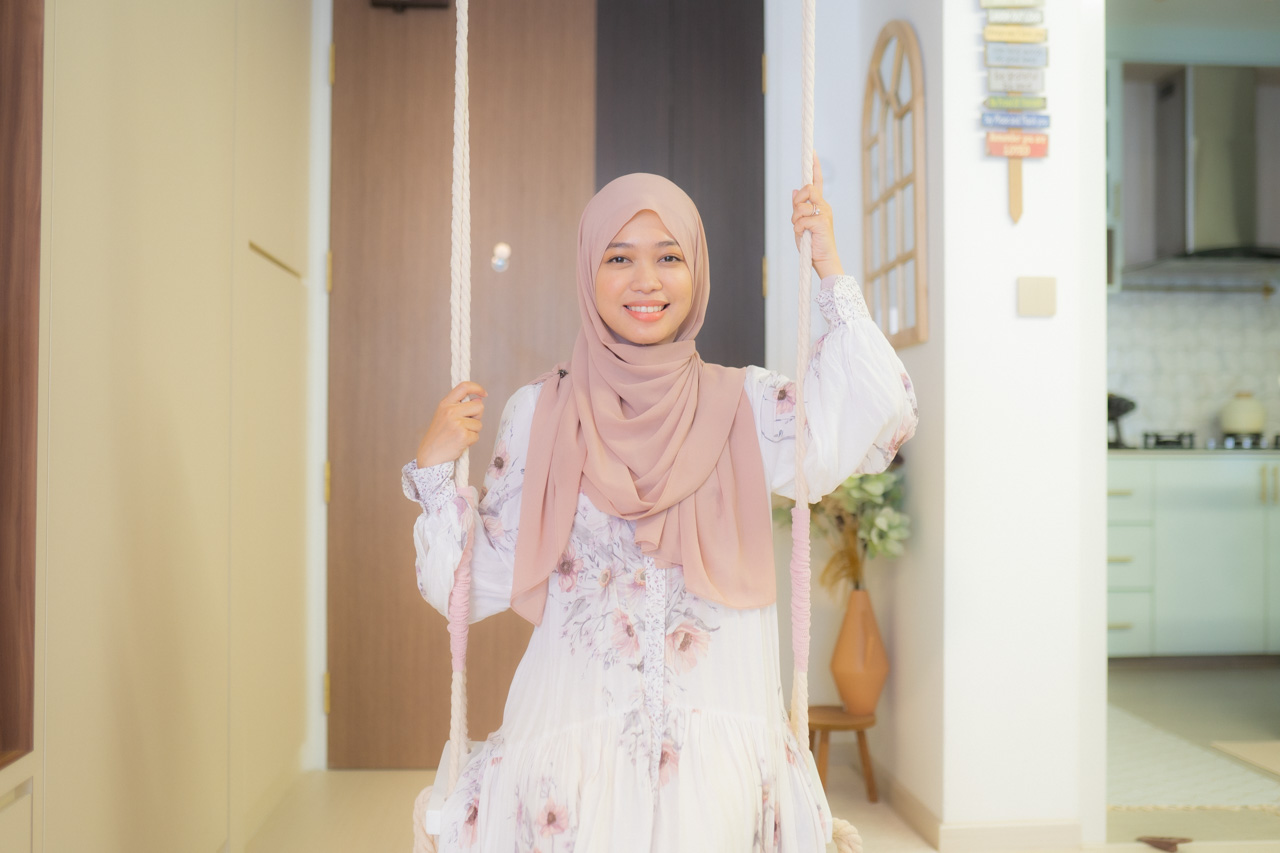
Hanis, a part-time Allied Educator, agrees. When the pandemic struck, the 28-year-old’s job was affected as the Covid-19 restrictions limited her ability to work and, consequently, her income.
“Having friends who are also going through the same things you are – some worse, with losing jobs – helps provide company for misery,” she laughed.
With work-from-home measures and school closures kicking in during the Circuit Breaker, the stress was exacerbated by the fact that she was staying in a multigenerational home as she waited for her Built-To-Order HDB flat to be ready. This meant that she had to juggle the roles of daughter, wife and mother simultaneously.
For Malay/Muslim women, this multiplicity takes deeper root when living with in-laws. Under the watchful eyes of older relatives, one has to play the part of tireless homemaker, uncomplaining caregiver, kitchen queen, flawless mother, and, of course, exemplary Muslim. Keeping this act up is necessary to guard against the sharp tongues of gossipy relatives — especially the ones who might think you’re not good enough for your husband.
With social, cultural and religious pressures converging to set high standards of what it means for a Malay/Muslim woman to be a good daughter, wife and mother, it was hard for Hanis to flourish while sheltering in place.
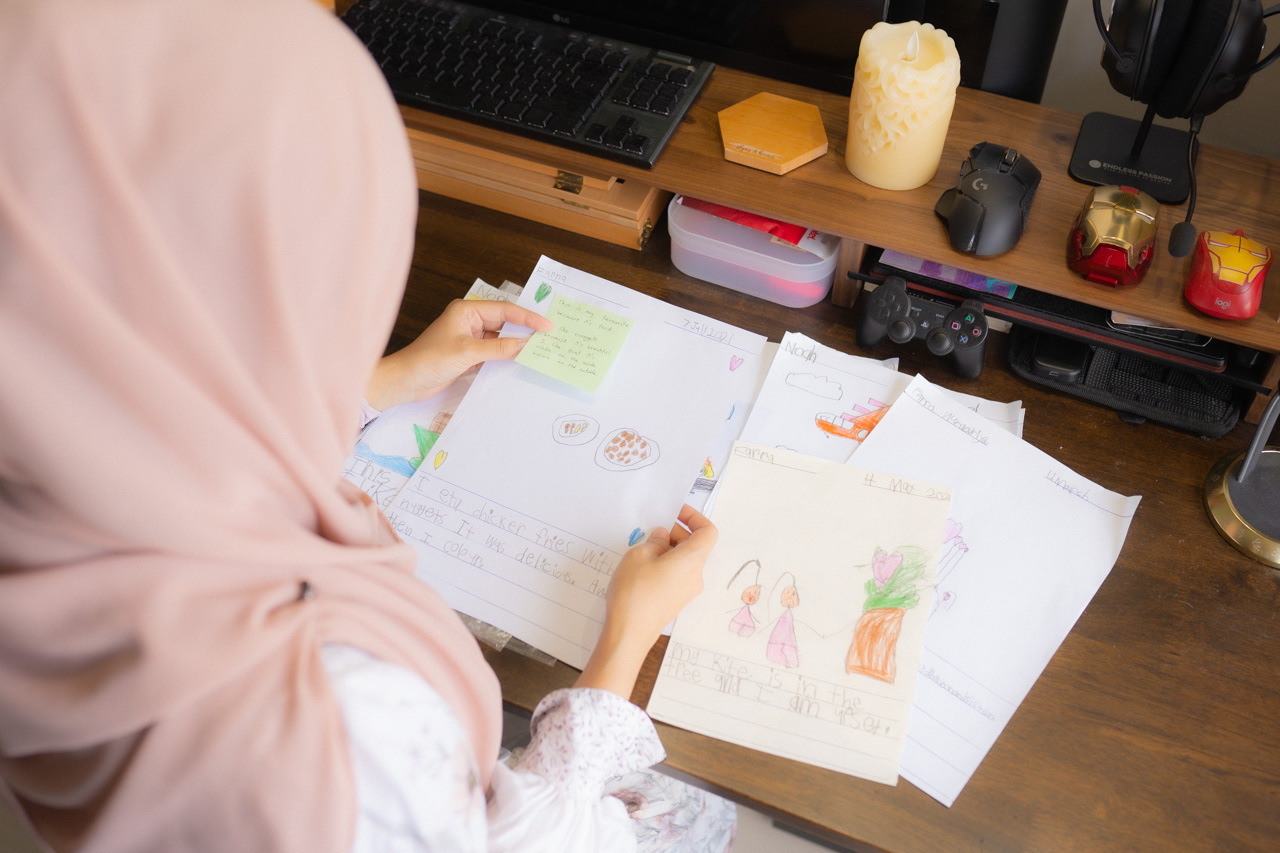
“My pre-pandemic coping strategy included shopping and coffee, or having ‘Me Time’ while my kid is at school,” she reminisced.
“It has impacted my mental health quite negatively as I am not someone who deals with change well. It doesn’t help that I have to deal with entertaining a child all day long as well without respite… I honestly think it would have been easier if I were living alone.”
With her usual coping mechanisms and support systems made relatively inaccessible by Covid mitigation measures, burnout started to creep in. After all, she had to be on the ball 24/7 in an environment where she couldn’t fully put her guard down. On top of the cultural obligations expected of her to be a domestic goddess, the stress of not being able to contribute to the household income and not being able to progress professionally got to her.
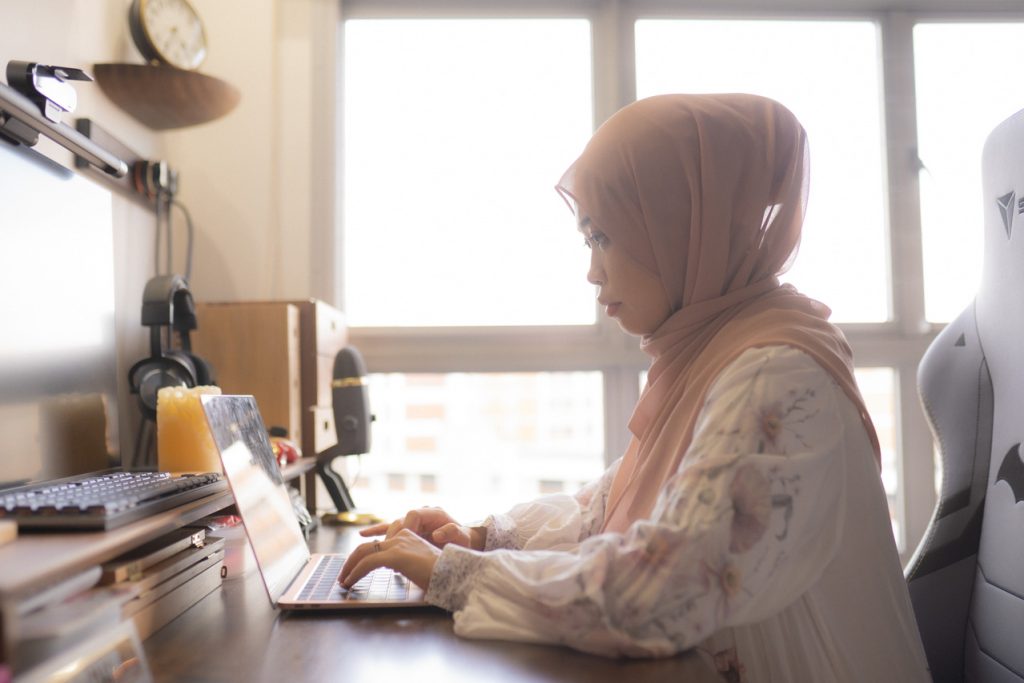
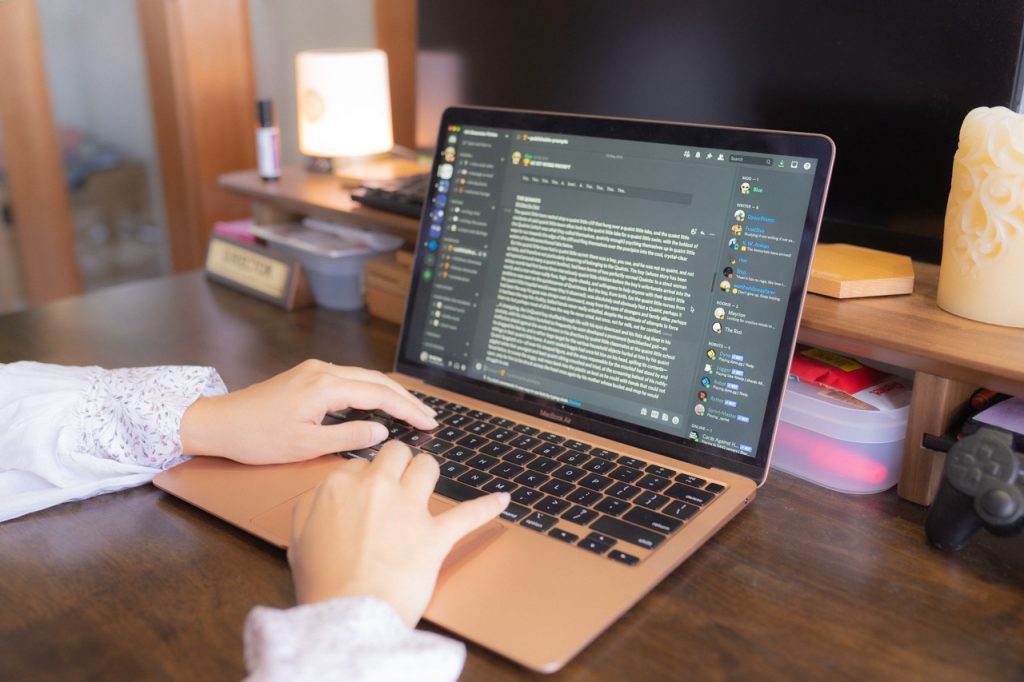
Realising that she needed to carve out time and space for herself to rest and recharge, Hanis sought the support of an online community of writers on a Discord server. It was there where she reconnected with a part of her identity that had laid dormant during the years of navigating marriage, motherhood and moving between homes in 2020.
Being in the group has given Hanis an outlet to de-stress and express herself creatively among new, like-minded friends.
“Making online friends because I can’t meet up with real ones, or when I do, our choices are limited because we can’t dine in and do things like that, and being able to connect with others online also allows more freedom,” she shared.
But the uncertainty that comes with living in the pandemic era continues to plague her.
“The anxiety of not knowing when it would end, then not wanting it to really end because I feel like I have to deal with change again, and not knowing how I can get help without having to leave my kid,” have all weighed heavily on Hanis.
She wishes she had been more aware of mental health services available online for people like her.
Coping Mechanisms
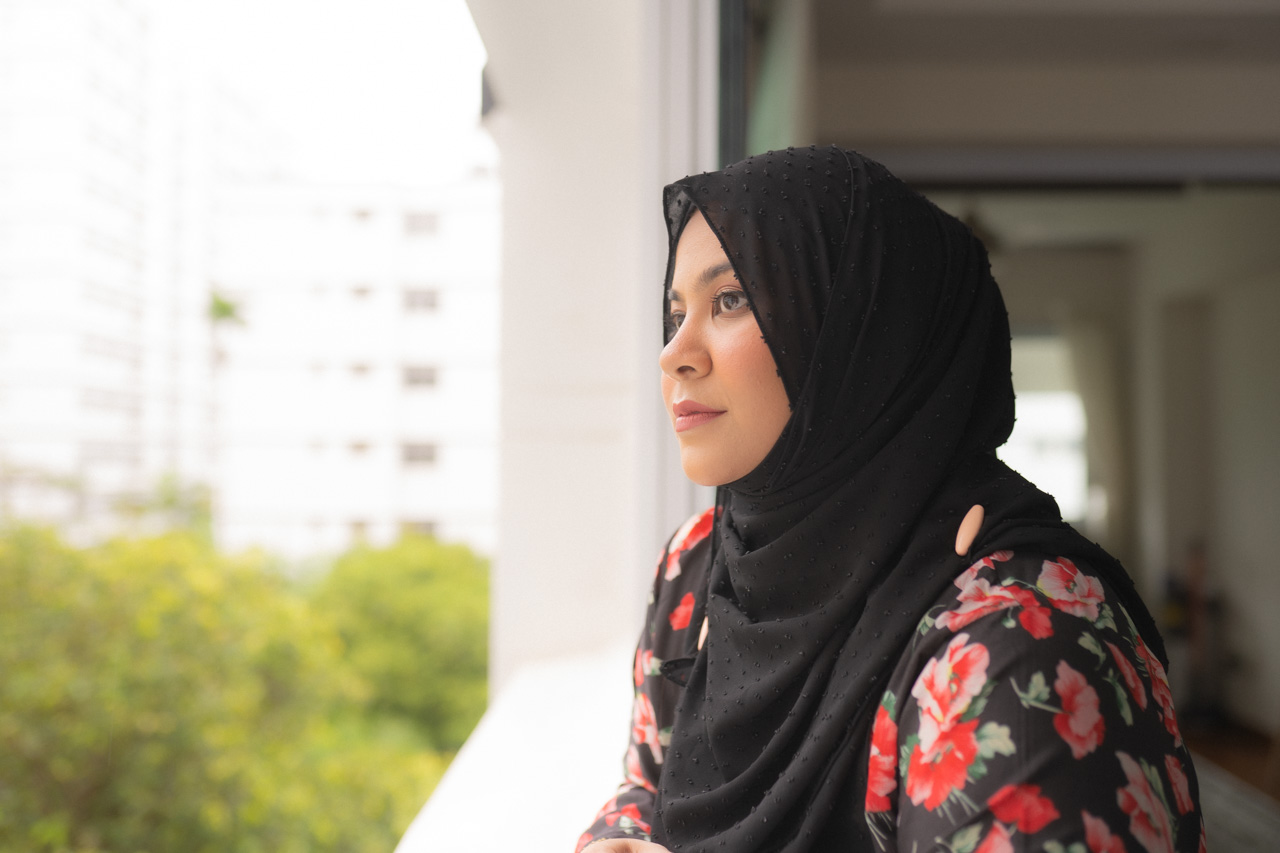
Social service organisations like PPIS have recognised the particular need for mental wellness among Malay/Muslim women in dealing with Covid-19.
Over the past year, the organisation has swiftly put together programmes and courses online to support the Malay/Muslim community as it deals with fear, change, isolation and loss.
While there’s never a good time for any relationship to fall apart, being in the middle of a pandemic means coping mechanisms are no longer easily available for those nursing a broken heart. Just ask part-time student Nadya Insyirah, who endured a painful break-up in July 2020.
“It was major because this was a relationship I had following a broken engagement, so I genuinely thought it was my rainbow after a storm. It was tough to realise it was a second storm,” the 24-year-old lamented.
Her despair was entrenched in the simple fact that she lost two loves. But for many other Malay/Muslim women, the added stress of broken relationships stem from the ingrained expectation to marry young and bear children.
As a fellow Malay/Muslim woman, I know all too well that ideal womanhood for us hinges on marriage and motherhood. Unmarried women who prioritise other common life goals like career or educational success are considered outliers in the community; nonconformists who can be discreetly shamed as an “Anak Dara Tua”, or spinsters.
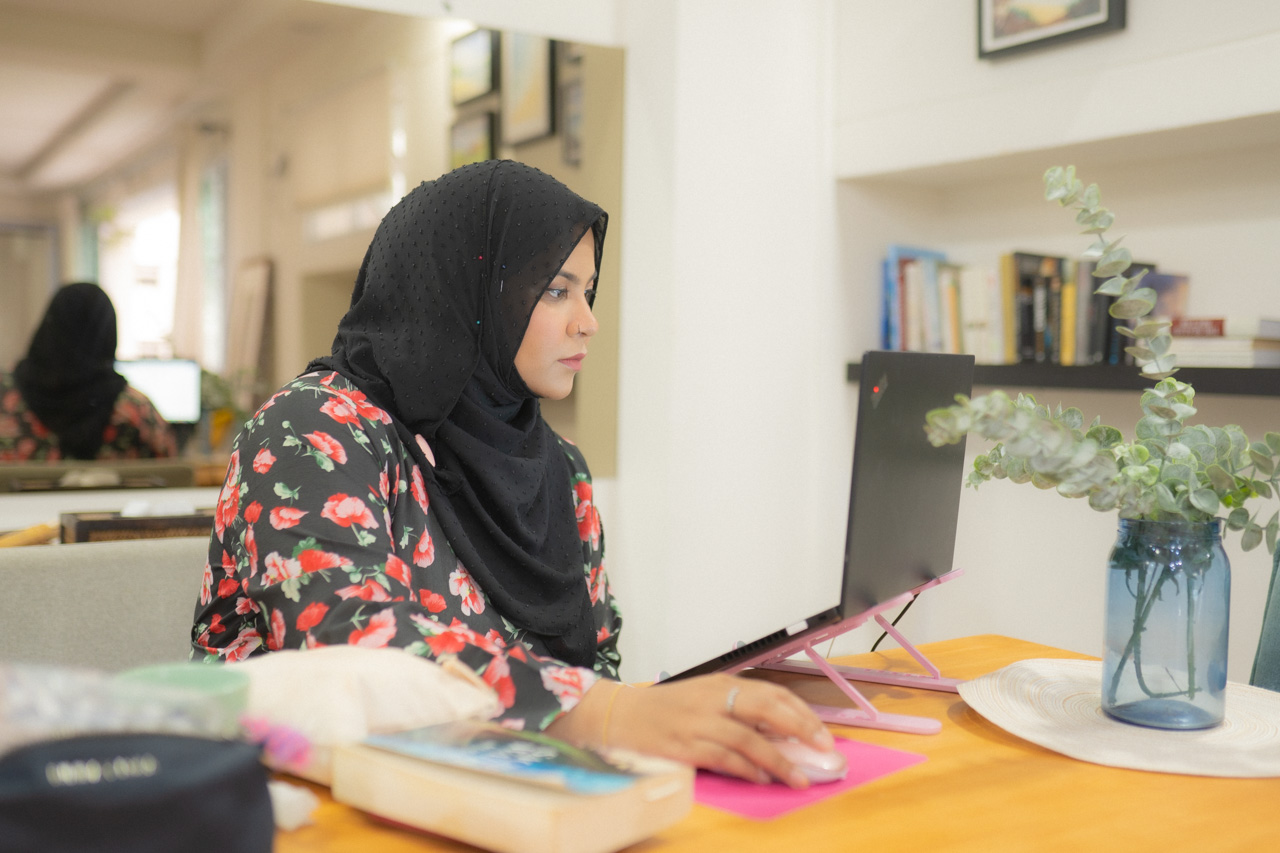
Seeing how she was struggling to come to terms with the end of a relationship, her cousin recommended that she join a programme offered by PPIS – the SYM Relationship Learning Circle.
Nadya clarified that the programme didn’t focus solely on romantic relationships. Instead, the SYM Relationship Learning Circle provided her and other women with a safe space to recalibrate the relationship they have with themselves; an important exercise for Malay/Muslim women who are socially conditioned to put the needs and care of others before their own.
This can’t be helped when looked through the lens of religion. In Islam, the men are clearly defined by their roles as the protectors and maintainers of women, placing them as the head of households. Their masculinity is defined by their ability to provide for their wives and children. In turn, femininity is determined by traditionally domestic roles.
It clashes with modern philosophies of gender equality, often resulting in identity crises among Malay/Muslim women. How do you make sense out of dissonant traditional and contemporary attitudes?
It took Nadya a while to realise that while all women are full of wonder and strength, learning to recover their sense of self cannot happen in isolation – support from other women was also crucial. Each week, participants of the Learning Circle come together on Zoom to reflect on and learn how to reconnect with their own thoughts, feelings and overall being.
“It honestly helped me a lot… I learnt that I cannot control what other people do, but I can control what I do with it. I also learnt to sit with my feelings and not have to put up a strong front all the time,” Nadya reflected.
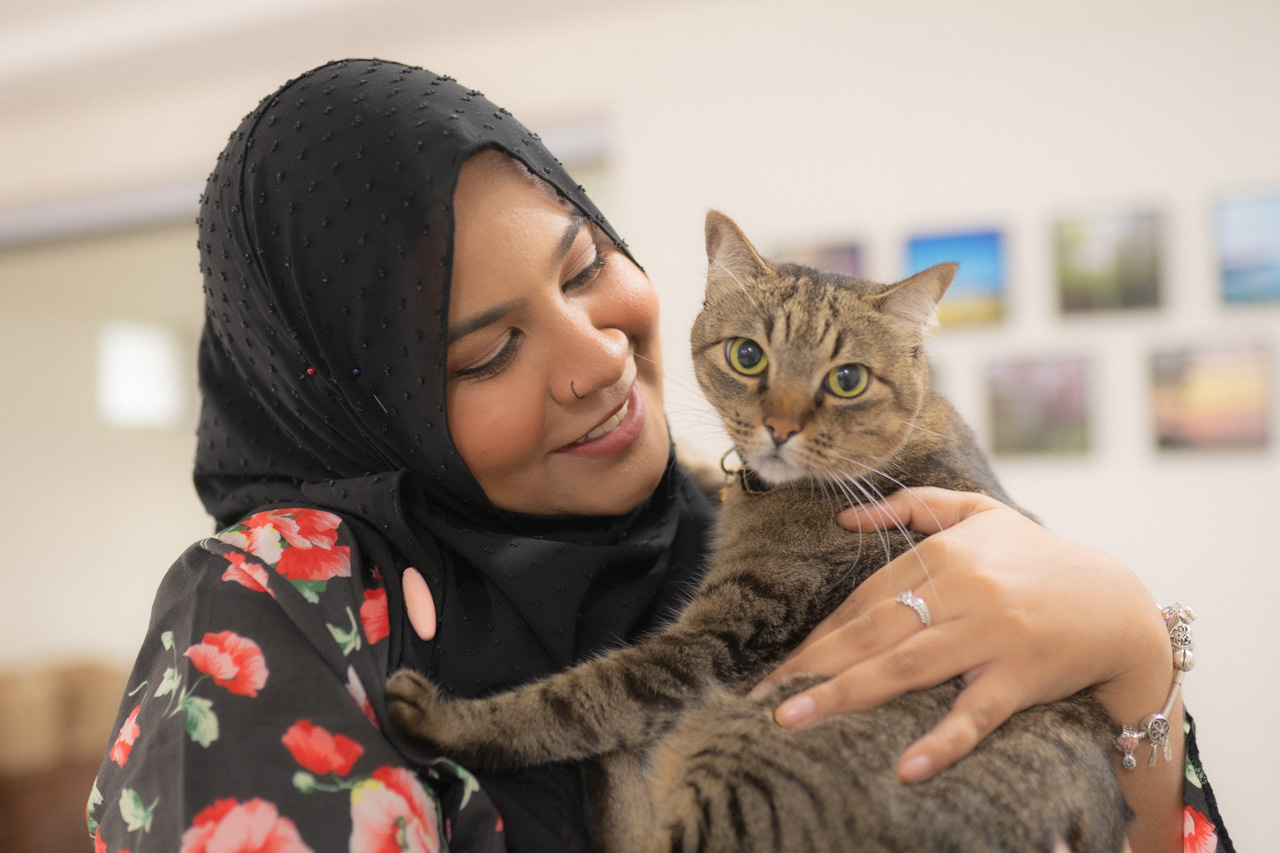
The ever-changing Covid-19 mitigation measures, climbing case numbers, and the inability to meet her tight-knit extended family regularly also triggered Nadya’s anxiety hard.
“The triggers are a lot louder when you’re cooped up at home, or when something you’ve been looking forward to gets cancelled at the last minute due to the change of rulings. It was also rough not being able to see my dad, grandfather, auntie and uncle too, due to the Circuit Breaker,” said Nadya.
The impact of two muted Hari Raya Aidilfitri celebrations in Singapore shouldn’t be forgotten too.
“It was sad that my extended family wasn’t able to meet for Takbir Raya, which is a yearly tradition, especially when it was the first Raya without my grandmother. It affected all of us as I think we needed each other the most then,” she shared.
Aside from online counselling sessions offered by her university, Nadya found solace in religion.
“My faith has played an extremely large role [during the pandemic]. The idea of having someone to trust no matter what and believing that everything happens for a greater good has put my mind at peace so many times, even if it doesn’t always work,” Nadya explained.
Muffled Ambitions
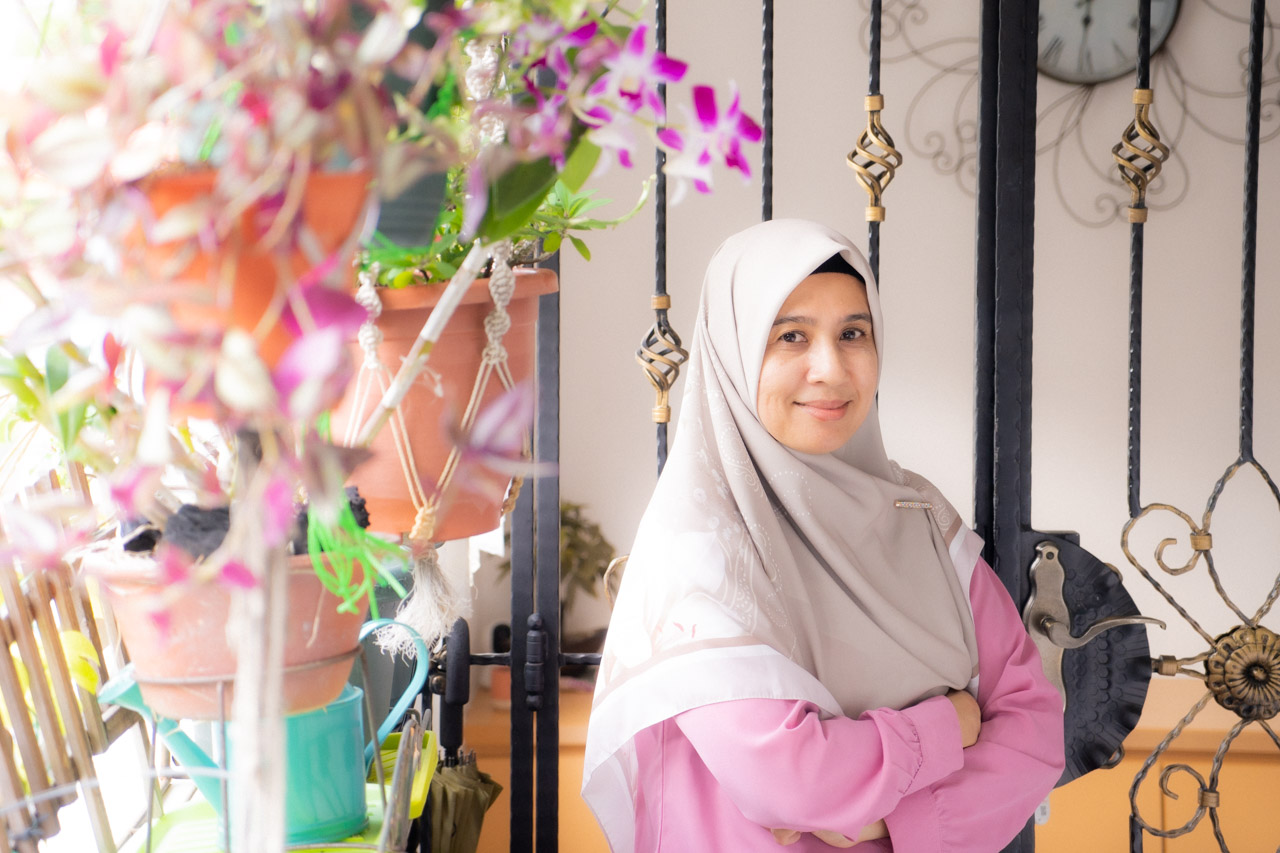
The muted Hari Raya celebrations of 2020 also badly affected another segment of Malay/Muslim women: home-based business owners. As President Halimah Yacob acknowledged in a Facebook post, many of these women rely on the income from their independent catering business while caring for children or the elderly at home.
Home-based baker Noraini Yusof saw a considerable decline in business when Covid-19 struck. The 55-year-old has been baking traditional Malay kueh as well as more contemporary cakes and tarts since 2007 for a clientele that has grown mainly through word-of-mouth. Her business, NY The Baker, has even expanded into the lucrative wedding industry, supplying individually packed cupcakes and kueh as berkat, or door gifts.
With social gatherings, weddings and festive celebrations significantly curtailed, orders slowed to a crawl. The Circuit Breaker in May 2020 that was designed to keep as many people at home as possible halted orders entirely. A fine of up to $1,000 was imposed on businesses that engaged courier services to deliver goods to customers or allowed contactless pick-up.
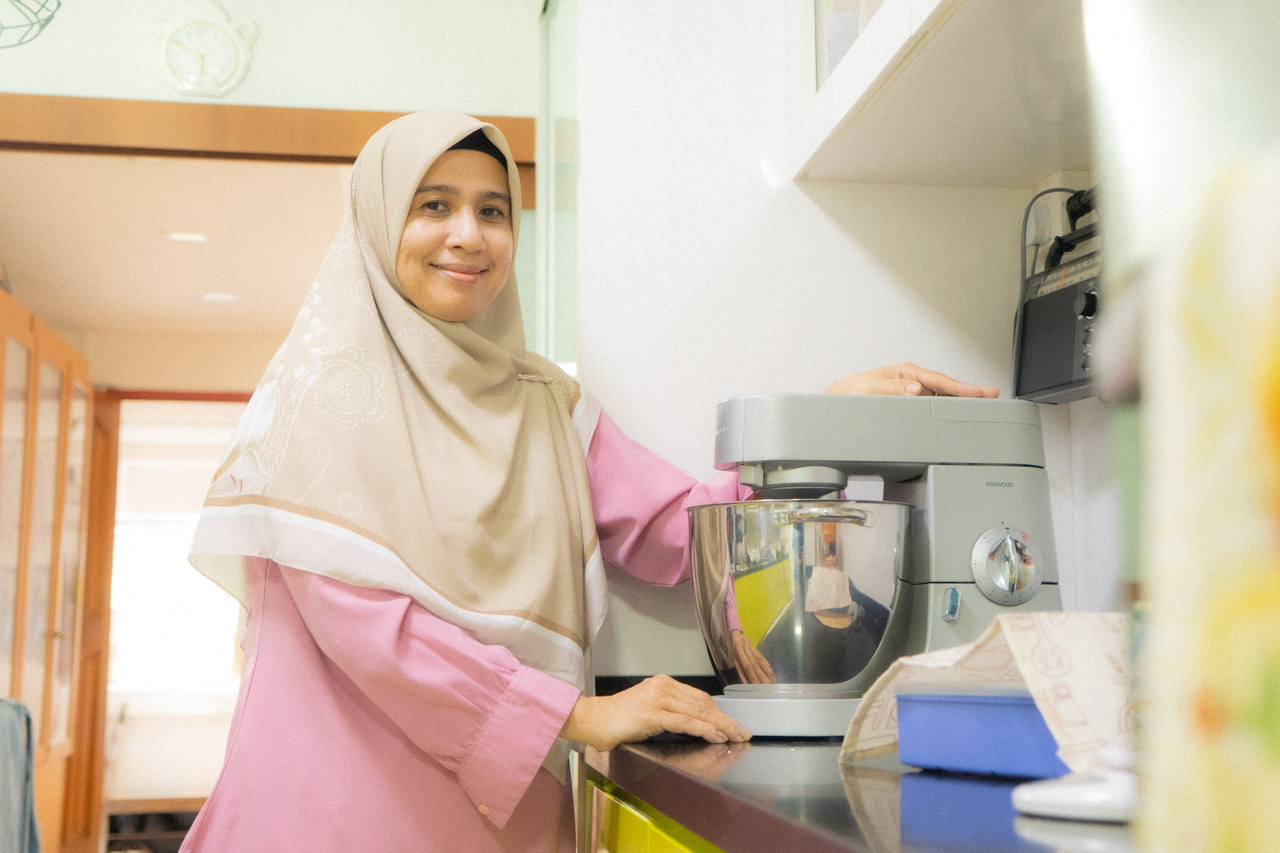
Although she was fearful and worried about the future of her business, Noraini took the forced lull as an opportunity to rebrand. With the help of her daughter’s graphic design credentials, she unveiled a revamped, modern logo and name on social media, helping it stand out in an already saturated market of Malay home-based bakers.
The reason for this saturation lies in the rigid gender dynamics that have been long established in Malay/Muslim households. Having to put education and high-flying careers on hold to take on the role of homemaker, the most straightforward method to obtain additional household income is through at-home catering.
It’s entrepreneurship with reduced risk for a Singaporean demographic without much social or financial capital. No overheads to worry about and an accessible market by way of an ethnic community that seeks to support each other through word-of-mouth and communal goodwill. With the proliferation of social media these days, marketing comes easy as well.
But as Noraini knows, family matters hold a bigger priority than personal business aspirations — especially during the lockdown period.
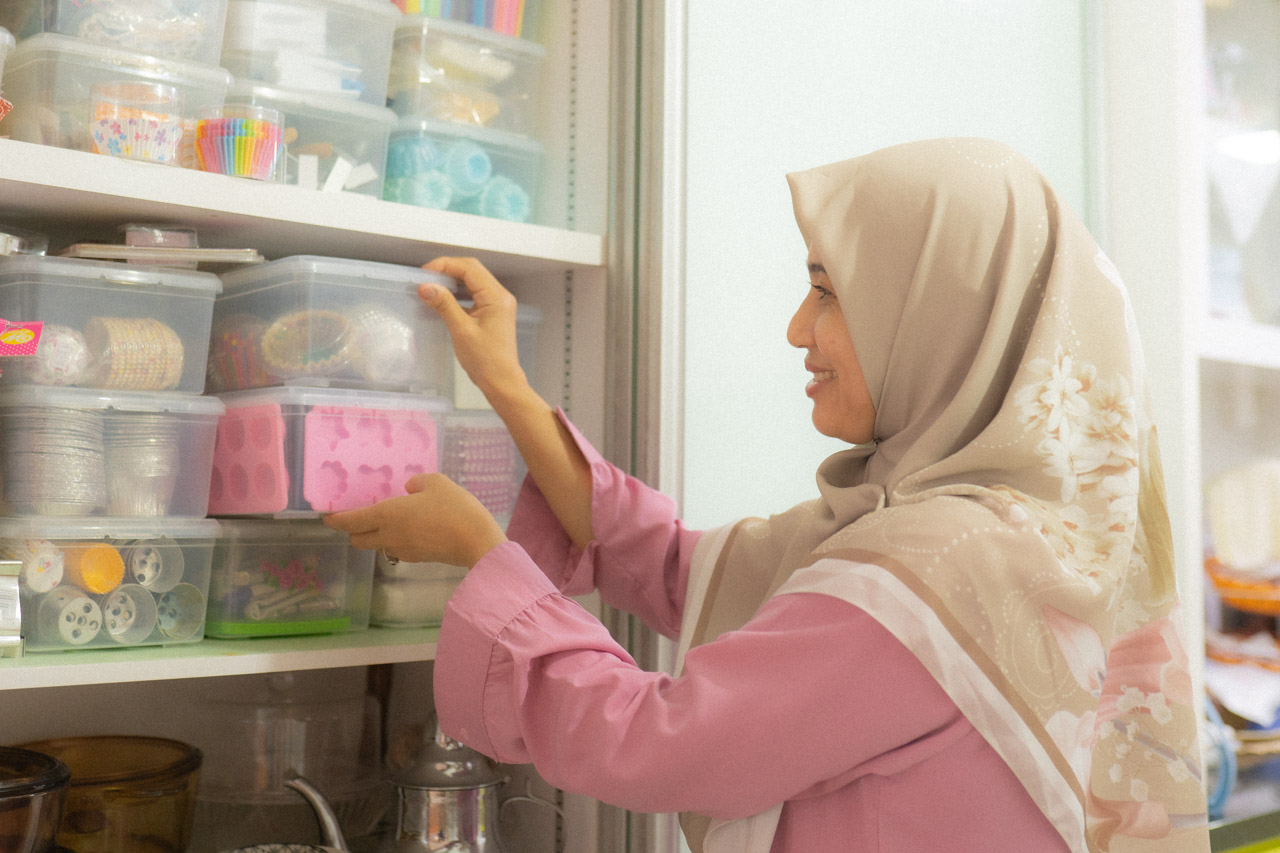
“I tried not to worry too much. Even though I didn’t have any orders, I was still very busy because my three daughters were at home doing online learning. Usually, I just have to cook dinner for the family, but with them being home all day, I had to prepare three meals a day for all of us, and it kept my mind off things. I also focused on my other hobbies, like sewing and gardening. I thought, if anything happened to my baking business, I could try other things like taking orders to sew curtains,” she said.
Noraini also had to deal with the fear and stress of her elderly parents being across the causeway in Malacca, Malaysia. Like many Malay/Muslim women, she feels a strong sense of responsibility towards her parents, despite having four other siblings to share caregiving duties with.
Partly out of necessity (her brothers work full-time jobs) and partly out of resignation to prescribed gender roles (women are usually relegated to caregiving duties), Noraini volunteered to take care of her parents’ needs. Her home-based business gives her the time and flexibility to do so.
“My brothers were more relaxed about it, saying to just let them be. But I’m the one who usually takes my parents to their medical appointments so I know they are not as capable of taking care of themselves as my brothers think,” she said resignedly.
“I was very worried about not being able to get to them if they fell ill or needed help. There were many nights I couldn’t sleep, thinking about my parents. But they really didn’t want to come back to Singapore, so I had to put my trust in God and His plan that everything will work out.”
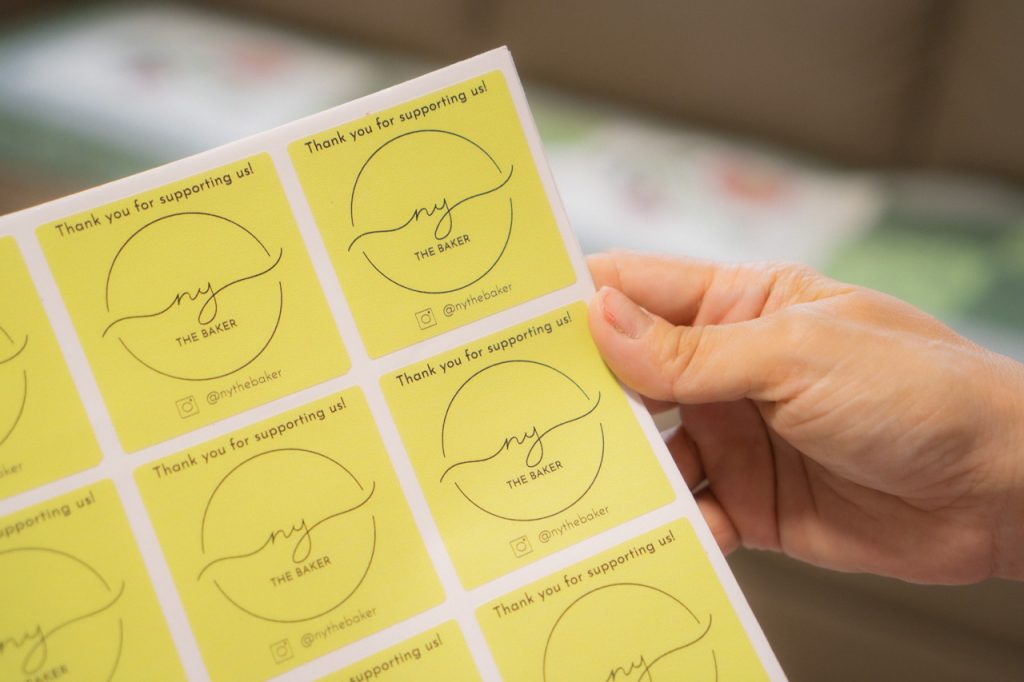

Today, Noraini has learnt to take things a day at a time. With her parents currently happy and faring well in Malaysia, she has allowed herself to let go of her fears for them and turn her attention back to the business she has been building for the past decade. Though the initial stress would have been significantly alleviated if the men bucked cultural expectations and carried the responsibility and mental load of managing the household and caregiving too.
While orders still remain below pre-Covid highs, she has adopted several strategies to keep her business chugging along. Aside from taking advice from her internet-savvy Gen Z daughters on improving her social media engagement, one of the more innovative approaches has been collaborating with other home-based bakers on dessert boxes.
“Before Covid-19, I joined some baking classes and made friends there. Recently, my friend from the baking class had a customer that wanted to order multiple kueh and treats. So I joined their order and helped to bake the fruit tarts and brownies, while my friend contacted other home bakers to make the remaining kueh,” explained Noraini.
Noraini is hopeful that this spirit of collaboration — and of women looking out for women — will help sustain her business until Covid-19 measures are relaxed further to allow larger gatherings and weddings to resume.
Strength in Numbers
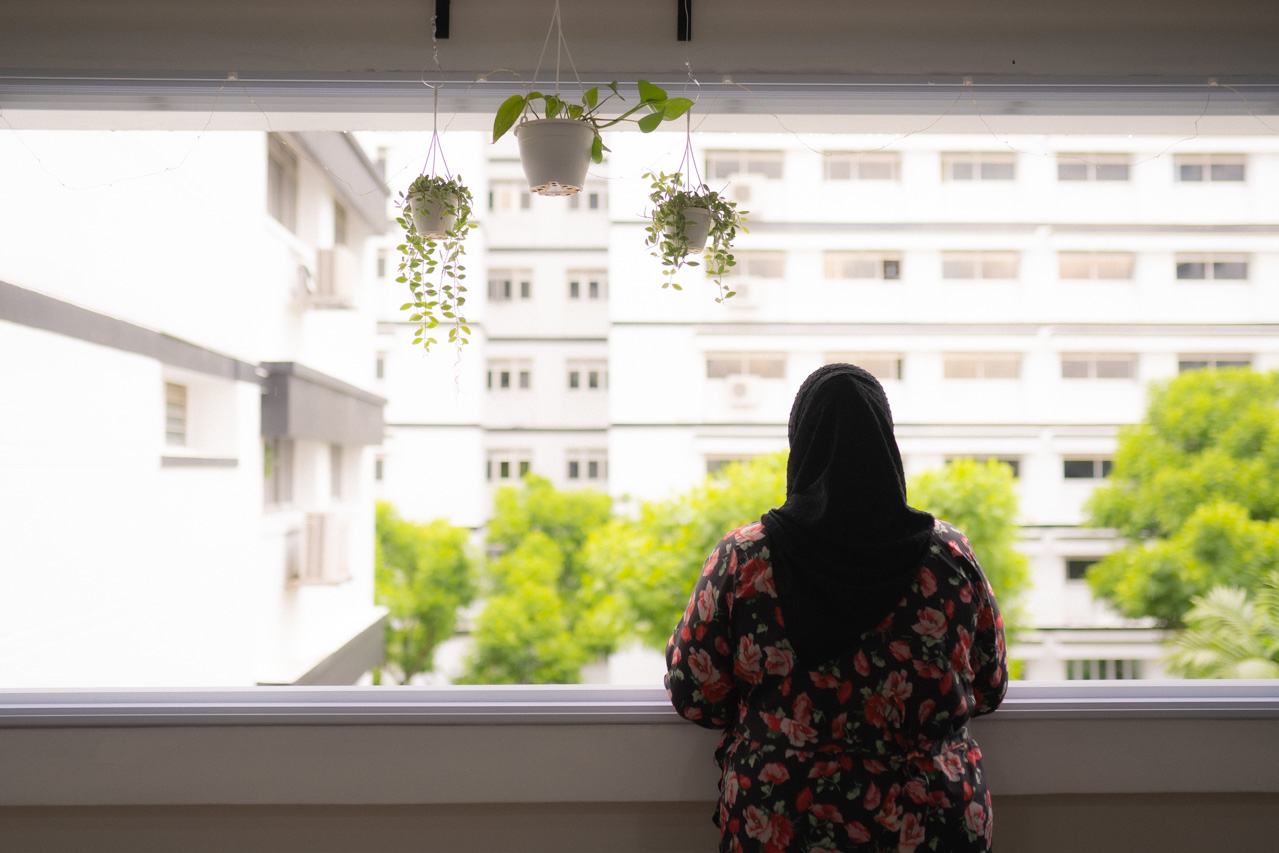
When so many important people depend on you, the choice between falling apart or finding a way to move forward becomes an easy one. Many Malay/Muslim women make this choice every single day.
While it took me nearly three years to find my way out of a fog of isolation and depression due to lack of access to resources, these women have pulled themselves together and learnt to adapt in a matter of months. But as they continue to adapt, the resources available to bolster them will have to keep up.
Now that it’s become increasingly clear that Covid-19 is here to stay, what exactly will our new normal look like? Would we occasionally experience snap lockdowns? Will we have to work from home periodically? Will our in-person avenues of entertainment and relaxation ever be the same?
The continued resilience and adaptability that will be asked of all of us, especially Malay/Muslim women, make it imperative that we learn to prioritise self-care for long-term well-being. Now, more than ever.
“I’m realising that investing in my hobbies is way more important… because when it came down to me and myself, the one thing that kept me sane were the things I loved to do,” mused Hanis.
With many Malay/Muslim women sharing the same fears and challenges — of family responsibility, caregiving, loss of income, and overall uncertainty — it is important to recognise how building an ecosystem of support will go a long way towards helping them overcome difficulties and move forward.
But for true change to take place, we need to tackle the root of the issue: prevalent gendered social norms within the Malay/Muslim community. It looms large as a structural hurdle holding our women back and if all of us — both men and women — shift the needle away from the cultural expectations of yore, the entire community could inch forward together up the social ladder.
There’s a scintillating Malay proverb that states that if the father urinates while standing, the child will urinate while running (“bapa kencing berdiri, anak kencing berlari”). What it essentially means is that the small flaws of one generation take on a bigger blemish in the next — and that, I think, applies in this case. Let’s set things right now so our daughters can live in a post-pandemic world where gender roles are truly proportionate.

